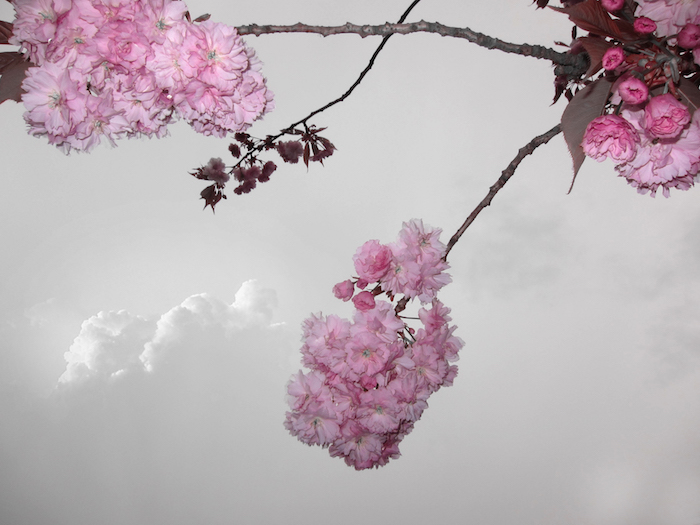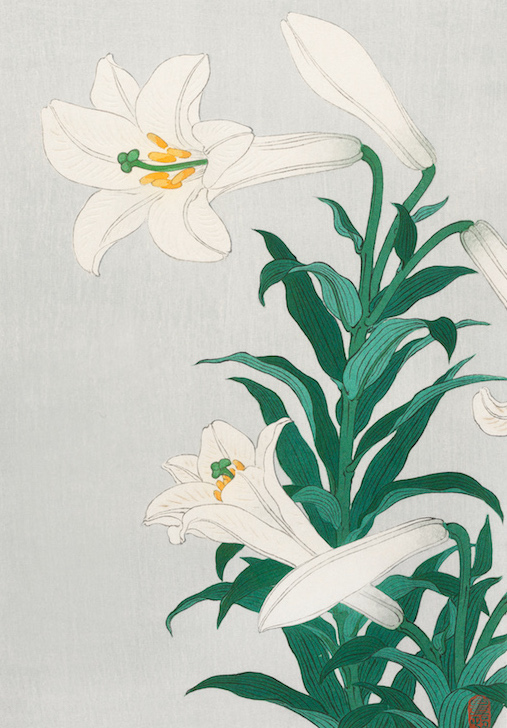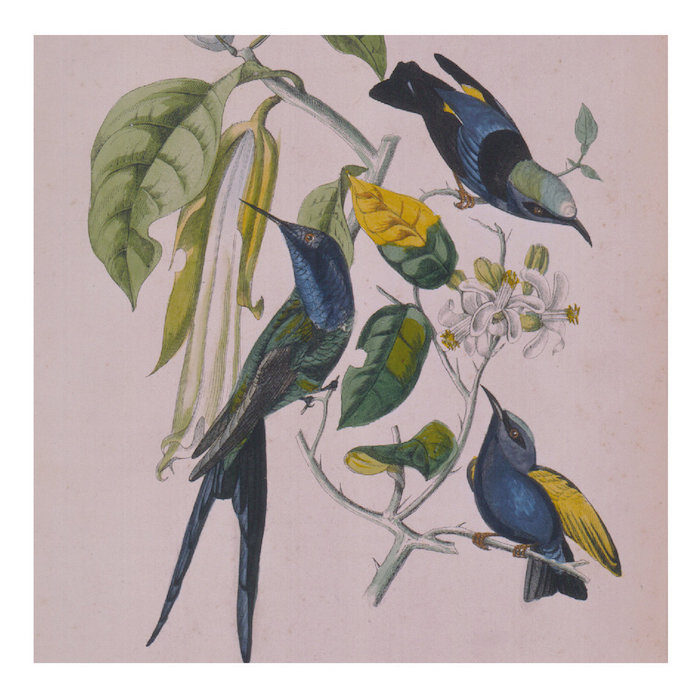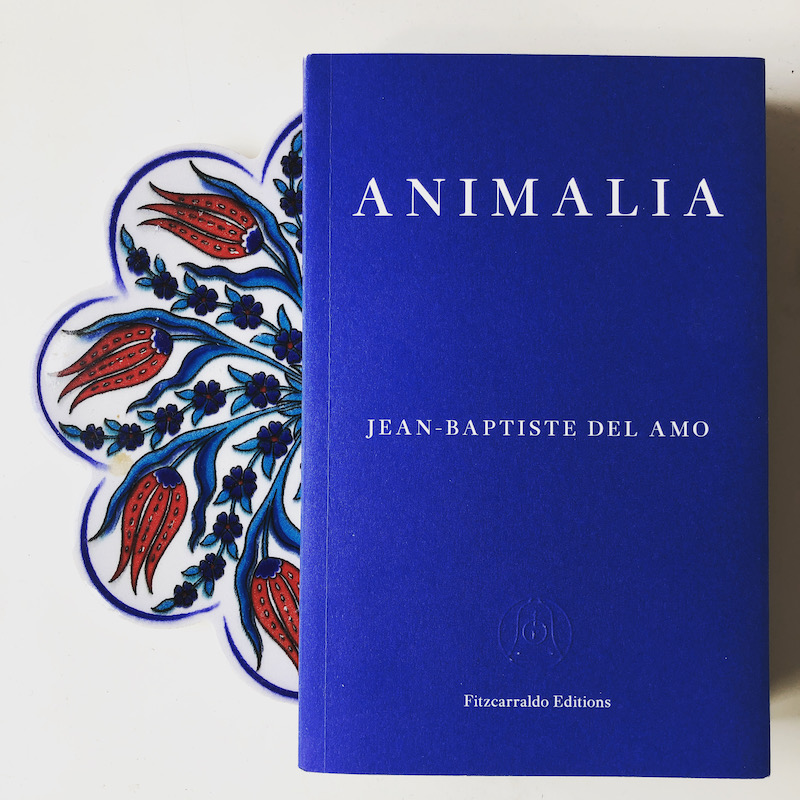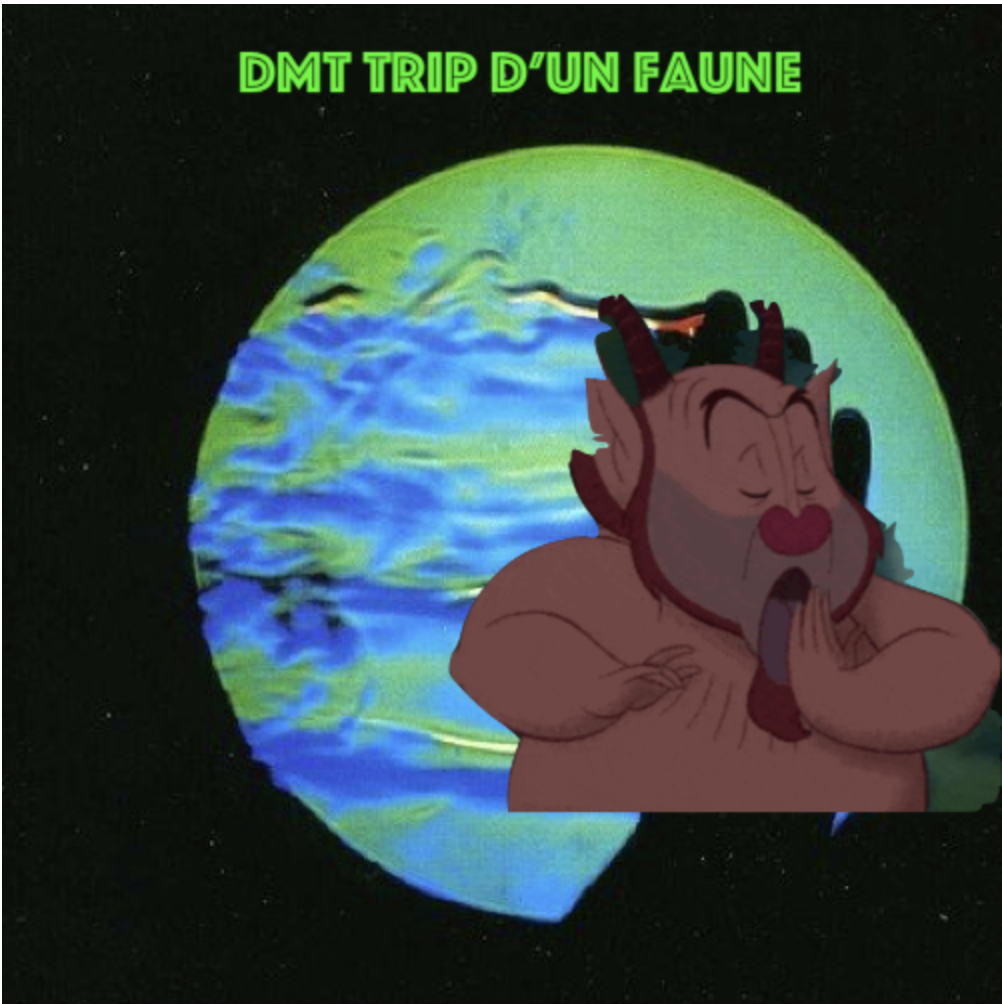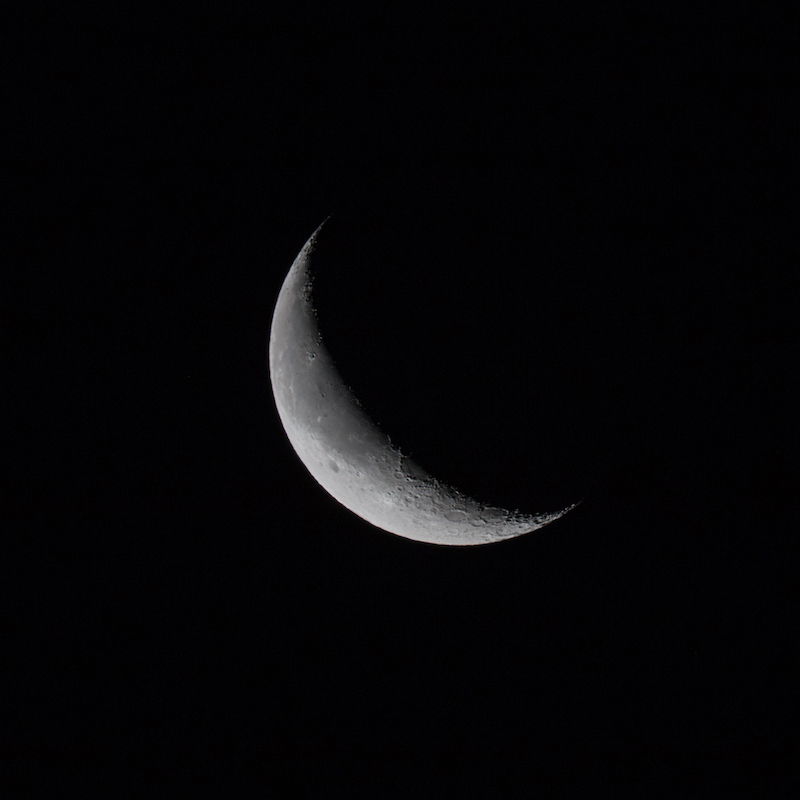
‘Tomorrow Never Knows’ – Junior Parker
‘Turn off your mind, relax, and float downstream.’ I’m trying, believe me.
‘4 Skies’ – Arto Lindsay
The lyrics to this song describe changing meteorological moods; ‘a sky like a room’, ‘a most violent sky’, ‘one sky on stage’, ‘a seething, crumpled sky’. Lindsay’s sparse guitar reminds me of a time-lapse video of rapidly moving clouds. The clear blue opening quickly becomes overcast. Billowing white cumulus grow into dark, rain-filled towers of cumulonimbus, before dispersing and leaving only wisps of cirrus. It’s helpful to remember that for almost all of human history, news alerts on your phone did not mark time.
‘The Twilight Zone’ – The Ventures
Welcome home!
‘17 Days’ – Prince
‘Is that my echo?’ Prince describes being alone for 17 long days and nights. But as this solo piano number attests, he’s no slouch when he’s stuck at home. If Prince can do it, so can you.
‘New Number Order’ – Shellac
One million and one, twenty-two, seventy-five, eleven, eleven. This is the new number order. Tuesday, Saturday, next Wednesday, last Monday, two weeks on Sunday the 99th of Monthuary.
‘Anxiety Montage (1952–1955)’ – The Carl Stalling Project
Carl Stalling composed music for Warner Bros.’ Looney Tunes and Merrie Melodies cartoons, which is why his music is perfect for today’s ‘run-off-a-cliff-and-your-legs-are-still-spinning-but-the-ground-has-fallen-away’ feeling.
‘Houses’ – Elyse
‘I could never make it in your house / You could never make it in mine.’ A ballad for solipsists. Or a song about the need to respect different domestic needs, even in love. He likes to get up late, but she’s an early riser. They’re minimalists, but we enjoy having things to look at on the walls. You want to watch The Tiger King, I don’t. Etc.
‘What’s He Building?’ – Tom Waits
Rear Window is widely regarded as one of Alfred Hitchcock’s greatest films because deep down, at the core of human consciousness, we are all nosy neighbours. ‘I heard he was up on the roof last night signalling with a flashlight. And what’s that tune he’s always whistling? What’s he building in there?’
‘Big Louise’ – Scott Walker
It’s fun to speculate about what your weird neighbour is doing in his garage all day, but it’s more important to keep an eye on those who are isolating alone on their ‘fire escape in the sky’.
‘Simmer Til Done’ – Maximum Joy
Research estimates that, as of April 2020, in the New York borough of Brooklyn some 15,000 personal essays were being written under the title ‘Love in the Time of Coronavirus’, and a further 7,500 crowdsourced documentary films were in pre-production, all titled ‘The Isolation Diaries’. Sources suggest that as many as 90,000 cookbooks titled ‘The Survival Kitchen’ may also have been written globally, as fears mount that a shortage of flour in grocery stores across the world may predict a steep growth in men explaining at tedious length how to make ‘like, the perfect sourdough, bro’.
‘A Letter From Home’ – ‘Blue’ Gene Tyranny
My first book with Fitzcarraldo Editions, Pretentiousness: Why It Matters, began with the lyrics to another ‘Blue’ Gene Tyranny song, titled ‘Leading a Double Life’. This one comes from the same haunting album, Out of the Blue, released in 1978. Tyranny described this composition as an attempt to describe ‘the development of consciousness over three “sizes” of time: (1) over thousands of years (based on the work of Julian Jaynes), (2) within a person’s lifetime from childhood to adult perceptual illusions (based on the work of Jean Piaget and others), and (3) at micro levels (eg. involuntary events, sudden feelings/thoughts)’. But it’s also simply a beautiful letter from home.
‘My Other Body’ – General Strike
The one that shares space on buses and in cafes, breathes without a mask, shakes hands. Here, Dawn Roberts sings beautifully from Michel Foucault’s ‘Mental Illness and Psychology’.
‘Behind the Door’ – Vernon Green & The Medallions
Isolation, doo-wop style. Between the 2 minute and 2 mins 20 second mark is a falsetto backing vocal that can shatter glass.
‘I Gotta Get Away From My Own Self’ – Ray Godfrey
A masterpiece of quarantine soul. It’s ambiguous whether the ‘you’ referred to in Godfrey’s lyrics is a lost lover, or the singer’s own mind.
‘City’s Hospital Patients’ – Teri Summers & The Librettos
The hospital system, explained. Needs an additional verse about morgues reaching capacity, PPE shortages and struggling healthcare workers.
‘Depression’ – Sound on Sound
A song titled ‘Depression’ which features a chorus that goes ‘‘Move and jump! / Dance and funk!’ is the definition of putting on a brave face.
‘Winter’ (feat. Kathy Acker) – Peter Gordon & David Van Teighem
‘Yesterday is all I’ve got.’
‘Big Science’ – Laurie Anderson
‘You know, I think we should put some mountains here / Otherwise, what are the characters going to fall off of?’
‘Zones Without People’ – Oneohtrix Point Never
Music to look out of your window to.
‘Lonesome Town’ – The Cramps
This forms part of a tiny sub-genre of song – a favourite of mine – in which the singer imitates heavy sobbing.
‘Heartbeat’ – Wire
The kids are asleep. Your eyes will stage a sit-in at the back of your skull if you try watching anymore Netflix. The room is dark and silent. You feel icy. You feel cold. You feel old. You are mesmerised by your own beat. Like a heartbeat. Like a heartbeat. Like a heartbeat. Like a heartbeat…
‘The Bushes Scream While My Daddy Prunes’ – The Very Things
As well as a good way of getting fresh air and exercise, gardening can be a therapeutic activity in difficult times such as these.
‘Zombie’ – Fela Kuti
Somehow this makes me think about joggers.
‘Running’ (feat. Congo Ashanti Roy) – Voice of Authority
Speaking of exercise.
‘Southern Nights’ – Alain Toussaint
When all this is over, we will sit outside together, watch the sun go down and drink mint juleps.
‘Suo Gân’ – arr. by John Williams
Searching for something to do under lockdown recently, I decided to learn Welsh. I do 10 or 15 minutes a day using a language app on my phone. I don’t know nearly enough to translate this Welsh lullaby, although I do recognise the word ‘cariad’, which means ‘love.’ It is my mum’s first language, although growing up in the south of England I never learned any besides a couple of basic phrases. My mum is in her 80s, and is immunocompromised as they say, not that we ever used that term before now. We are currently separated by 3500 miles of ocean, but the small part of the day I spend on my Welsh lessons is a way for me to feel closer to her.
This recording of ‘Suo Gân’ is John Williams’ arrangement from the Steven Spielberg movie Empire of the Sun. The film is an adaptation of a J.G. Ballard novel, based on the author’s experiences as a boy during the Japanese occupation of Shanghai in World War Two, another story about families separated by powers beyond their control.
Time for bed.
‘Jimbo’s Lullaby’ (from Children’s Corner) – Claude Debussy
I learned to play this on the piano as a teenager. The piece is slow and limpid for the most part, but certain passages demand extremely quiet yet nimble playing. My rendition usually sounded like it was being performed by elephants wearing ski gloves, which is apt as the piece describes a stuffed elephant beloved of the composer’s daughter, Chouchou.
‘Celestial Nocturne’ – Dr. Samuel J. Hoffman & Les Baxter
The choral sound in this – those rousing, swooping mixed male and female ‘ahhhh’s – reminds me of old Hollywood films of the sort that only seem to materialise on dreary afternoons at home.
‘Dreaming’ – Jon Hassell
I’ve been on a film noir binge lately so all my dreams sound like this. Noir is the cinema of being stuck, unable to escape from circumstance.
‘Closed Circuit’ – Kaitlyn Aurelia Smith & Suzanne Ciani
If you have a sleep disorder, as I do, then you’ll already be familiar with the ways in which time can stretch like long fronds of chewing gum stuck to the sole of your shoe. Thoughts become hard to let go of. Pacing the apartment at 3 a.m., I try to find places for my mind to travel. Listening to this piece, I like to imagine myself on a night train crossing Europe, passing through fields, mountains, towns and cities.
‘Valley of the Shadows’ – Origin Unknown
‘Felt that I was in this long, dark tunnel.’
‘Wild Dream’ – Joe Tossini
Nine times out of ten, when a friend says to you ‘I had a wild dream last night’, you just know it’s not going to be that interesting. So anyway I had a crazy dream last night that the Finnish government had issued an edict about the coronavirus crisis in the form of a poem, which they’d had translated into English and circulated internationally. I saw a verse of it spray-painted on the wall of a house, like graffiti in solidarity with a political cause. I would repeat it here but it’s too wild.
‘How Long?’ – Charlottefield
As we have stated before, indeed, that is to say, or rather let me put it another way, the issue is, if we reframe it, so as not to put too fine a point on the matter, and notwithstanding, if I may digress, while acknowledging and hearing what’s being said but instead coming back around to try and clarify this another way, we cannot answer such a question without first paying attention to the structures which allow one to query, or alternatively, and to put it in more concise terms, or to use a different terminology that’s less, arguably, with regard to your fourth question and to return to my second point, it is imperative that the transparency of our position on this with respect to viz and re and thus and a propos other positions, but not exclusive of them is, to coin a phrase, one which will, at the end of the day, bring together all sections of our community, yet offer closure without a shutting down of what is to all intents and purposes contrary to reports you may have read, which brings me back to the vital fact of the matter that, now more than ever, we cannot afford, if I can put it simply and bluntly, to take myself out of the equation for a moment here, and we have nothing but the utmost certainty that, now more than ever, the gravity of the current situation necessitates and underscores, now more than ever, both in the now but ever more with respect to the future, the vital responsibility which, now more than ever, weighs heavily upon the shoulders of every member of society to come back around to the original question.
‘Slow Down’ – The Feelies
‘Hold on / Keep on trying / Keep on trying / Slow down / You can make it / Try and make it.’
‘Thatness and Thereness’ – Ryuichi Sakamoto
A sense of which is smothered by thisness and hereness.
‘Yesterday, Today and Tomorrow’ – Charlie Megira
Charlie Megira died in 2014 aged just 44. The title of this song describes his sound perfectly. The sound of 1955, 1985 and 2025 occurring simultaneously. Time out of joint, as Philip K. Dick would have it.
‘The Carnival of the Animals: XII. Fossils’ – Camille Saint-Saëns
Camille Saint-Saëns’ suite The Carnival of the Animals is best known for ‘The Swan’, but I love the fact that the movement preceding his cygnet love song is dedicated to fossils, to deep time life.
‘Breathe’ – The Cure
‘Breathe on me / Be like you used to be.’ Almost a sick joke these days, but isn’t that proximity of one body to another what many of us are longing for? The Cure’s music suits many occasions because nobody does histrionics quite as vaguely as they do.
‘Is It All Over My Face’ and ‘Tower of Meaning’ – Blood Orange
The way Devonté Hynes’ interprets the great Arthur Russell here is to layer the downtown, experimental Russell – those yearning, arcing horn notes – on top of the disco Russell. It has the effect of replacing the innuendo and flirtatious joy of the original ‘Is it All Over My Face’ dance track with a mood of sadness and concern. This is music to sew masks and wash hands to.
‘Don’t Go’ – Awesome Three
Stay in, if you can. In any case, this one takes me where no walk outside or aeroplane trip could; England, summer of ’92.
‘Dub War (Chapter One)’ – Dance Conspiracy
Stay with me for a moment in the early 1990s rave reverie. ‘Nobody move / Nobody get hurt.’
‘The Bells’ – Billy Ward & His Dominoes
In which a man hears the sound of his own funeral. He didn’t wash his hands.
‘Breadline Britain’ – Communards
Recorded in 1986. Or yesterday. Either way, Jimmy Somerville has one of the most impressive falsettos in the business.
‘Somebody Else’s World’ – Sun Ra
‘Somebody else’s idea / Of somebody else’s world / Is not my idea of things as they are. / Somebody else’s idea things to come / Need not be the only way to vision the future.’
‘You and Your Folks, Me and My Folks’ – Funkadelic
Did you hear about the woman who began hoarding toilet paper when the Suez Crisis broke because she thought the world was on the brink of collapse, and then died years later when her ceiling collapsed under the weight of all that loo roll? This goes out to all the panic buyers out there. May your haemorrhoids be painful.
‘Chicken 80’ – Social Climbers
Remember the animals in the shade of the old oak tree, cool summer breeze, no ruffled feathers?
‘Television’ – The Beatnigs
I came across this on YouTube the other day while nostalgia-bingeing episodes of the early 1990s music programme Snub TV, a show which made a big impression on the adolescent me. The clip captures the band – fronted by Michael Franti and Rono Tse – playing this song live in San Francisco, using power tools and multiple drummers. I imagine the TV-is-government-propaganda message of this song would have felt dated for a long time (and their bike-messenger-hiphop style certainly pins it to a bygone era) but it resonates again under a president obsessed with Fox News and ‘the ratings’.
‘Sinister Exaggerator’ – The Residents
Fitzcarraldo Editions is an anagram of ‘Act Lizard For Sedition’, and everyone knows that the Earth is run by a secret cabal of space lizards who govern using 5G mind control transmitters implanted in the wings of crows, ravens, jackdaws and other corvidae birds. If you remove the ‘r’ from ‘corvid’ you get ‘Covid’. ‘R’ is the 18th letter of the alphabet. Add 1 to 18 – 1 being a close homophone for ‘won’, meaning success or victory – and you get 19, hence ‘Covid-19’, a disease which will bring ‘victory’ to the evil reptile overlords. One plus 9 equals 10 ie. a one and a zero ie. binary code ie. all computer devices are infected and must be destroyed. The only way that the human race is going to survive the pandemic is to ‘act lizard’ which will scramble the corvid/covid mind control messages, a strategy ‘for sedition’ which can be augmented by protecting oneself using the same blue and white colour combinations that are used on the covers of all Fitzcarraldo Editions aka Act Lizard For Sedition books. The wavelengths of these colours on the visible light spectrum have, according to resistance operatives planted deep within the Military-Indie-Publishing-Complex, been proven to jam reptilian communication frequencies.
‘Gospel for a New Century’ – Yves Tumor
‘On that summer, but I can’t be there / And this ain’t by design… / How much longer ’til December?’
‘Somewhere Over the Rainbow’ – Bill Frisell
Frisell’s guitar style sounds like cautious optimism.
‘Bob the Bob Home’ – Lounge Lizards
Each time I hear this song, I think of my adopted home, New York City. Maybe it’s John Lurie’s sax playing that sets me off, I have no idea. I also have no idea what the title refers to. Is Bob the Bob Home an instruction? ‘Hey pal, why don’t you just bob the bob home, huh?’ A game? ‘Balance the ball on your nose, then Bob the Bob Home into the net!’ Maybe it’s about someone called Bob. Not just any Bob, but the Bob. Bob, The Bob. The Ur-Bob. Original Bob. First and last Bob. Or there may be a comma missing after that first ‘Bob’: Bob, the Bob Home. Bob, Home of the Bobs.
Theme from ‘Escape from New York’ – John Carpenter
‘In the City’ (from The Warriors) – Joe Walsh
New York City action movie themes are currently filed under ‘songs of lamentation’.
‘An Open Letter to NYC’ – Beastie Boys
Staying with New York, this one is pure cheese. A real stinky camembert. Honking stilton melted over corn and dipped in syrup. But when I heard it the other day – beamed from the shuffle subconscious to the epidemic epicentre – it brought a lump to my throat.
‘Les Fleurs’ – Minnie Riperton
The Earth abides.
‘Hsaing Kyaik De Maung’ – Kyaw Kyaw Naing & Bang On a Can
Naing is master of the pat waing, a set of 20-plus tuned drums, arranged in a circle around the performer. This piece begins sedately, then around 1 minute 20 seconds, Naing lets rip. A joyous noise. The title roughly translates from Burmese as ‘the man who loved music’.
‘Healing Song’ – Pharoah Sanders
About five years ago I saw the elderly Sanders play for three hours straight in a small Brooklyn club. It’s one of the greatest gigs I’ve ever seen. It took me an hour to get home afterwards. I floated the entire way.
In C – Invisible Polytechnic
(The original recording was released on vinyl, and is split in two: Side A and Side B.)
Five years before attending that Pharoah Sanders show, I helped make this recording of Terry Riley’s landmark composition, In C. We released our version on the Junior Aspirin Records label I run with my friends Andy Cooke and Nathaniel Mellors. There are many things about In C that I find beautiful, from its elegant interlocking structure to the latitude it allows for improvisation. Yet the quality that resonates strongest for me is Riley’s generous insistence that any group can have a go at playing it, amateur or professional, and that anyone can find something to enjoy in performing it, no matter what standard of musician they are. Every version of In C is different, and there are many interpretations of it from musical cultures across the world. Our version features some twenty professional and amateur musicians. It puts Western instruments alongside Eastern, electronic sounds next to acoustic. Each time I listen to it I think of how music is an excuse to be social, to be in a room with other people, a rare thing right now.
At the end of the ‘Side B’ half of the piece, you will hear an exchange between two people. This was recorded at a yoga centre on Divisadero Street in San Francisco, which used to the location of the San Francisco Tape Music Center. In C premiered here in 1964. I had asked a friend who lived in the city, Ben, to go there and record the ‘room tone’ of the space. We originally thought we’d use this ambient sound as a subtle background colour, a secret homage to the composition’s history. What Ben ended up capturing was an awkward exchange he had with a woman about to attend yoga class. She had never heard of Terry Riley or the Tape Music Center, and judging by the recording, Ben was unable to convince her that either was of interest. The room’s history had gone, its past was of no consequence. All that remained were two people trying, and perhaps failing, to communicate. For a work of music about improvisation and listening to those around you, it seemed more fitting to use this bathetic conversation than our initial, more dry and conceptual idea.
Some years later, Ben abruptly ended our friendship for reasons I never understood. I was hurt, but today that friendship feels like an old dusty venue, a place in which memorable things happened that cannot be recreated.
One review of our recording of In C described it as sounding ‘autumnal,’ and that adjective has always felt accurate.
‘Lost in the Stars’ – Kurt Weill, performed by Lotte Lenya
‘And sometimes it seems maybe God’s gone away / Forgetting His promise that we heard Him say / And we’re lost out here in the stars. / Little stars, big stars, blowing through the night / And we’re lost out here in the stars.’
Alternatively, you can skip this playlist and go straight to Dick Slessig Combo’s 42-minute version of ‘Wichita Lineman’. Repeat as necessary.


